Pompeya, Ecuador
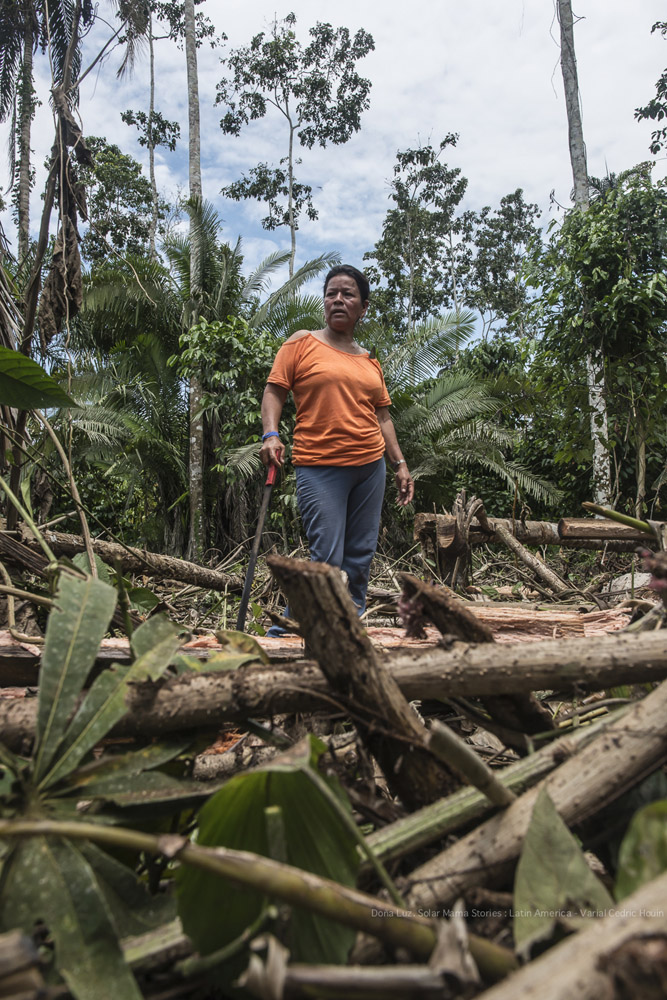
(…)
“How will the trip change your life?”
“I want to develop a cocoa and coffee project here on the plantation. Soon, a highway will pass by here, on the other side of the river, so it will be a good idea to produce coffee, plant more bananas to sell more at the market. This way, we could earn more money to sustain the family. Otherwise, it’s impossible. My eldest son told me that when he finishes school, he’ll help me clear the land to plant more bananas. We have yucca that we can sell at the market, and also some chicken.
“Once you start traveling and learn new things, you have to keep moving forward! I also want to sell handicrafts: weaving, necklaces, traditional dance clothing. That way, I’ll be able to pay for my children’s education.”
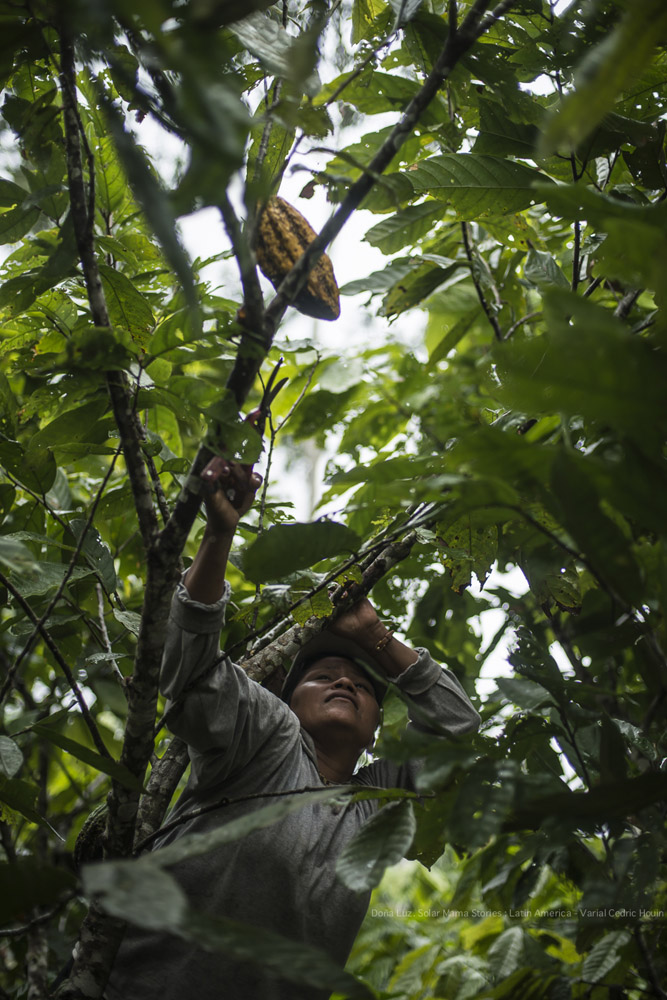
(…)
“Patricia, what would you suggest to the future women engineers and the foundation?”
“I would tell them how important it is for them to leave to learn; that it is a huge opportunity to bring change to their country and that they shouldn’t be afraid. They are in good hands. Take a plane, discover a new country, learn, have the opportunity to help ourselves out is a small sacrifice for much better outcomes! I also think that the organization should develop other projects for the community. Electricity is fantastic, but we still don’t have drinking water or toilet facilities here, so, perhaps, training to become clean water technicians. We only have rainwater. In the main town, they have water and electricity; they should also think about the finca localities. We receive no assistance here.”
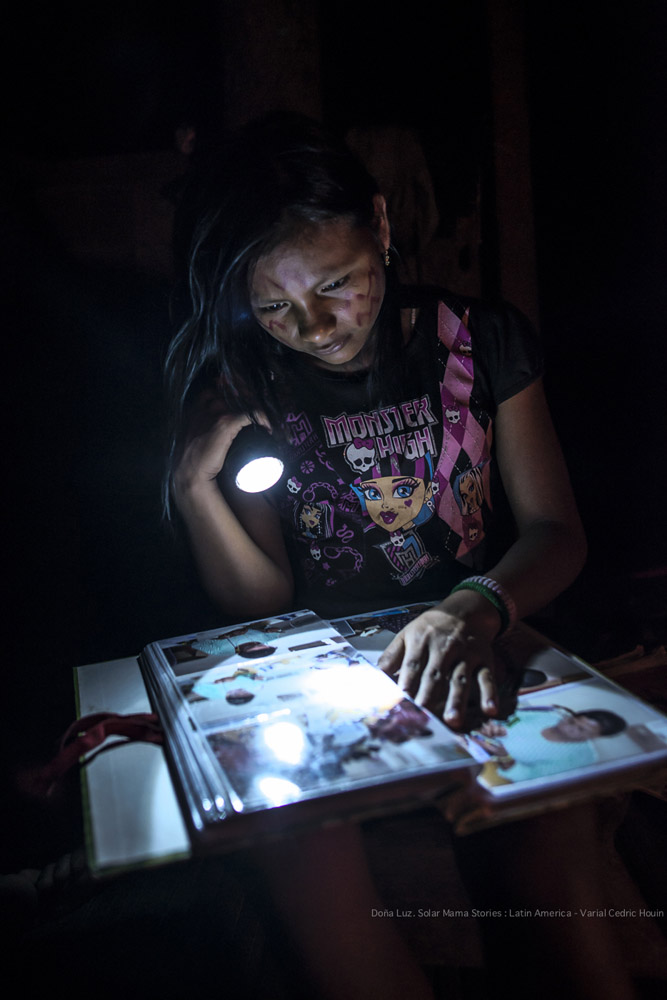
(…)
“Before leaving, what were your motivations and expectations concerning electricity?”
“I left to learn. The children cannot read or write at night. It’s difficult and dangerous with candles; it ruins their eyesight. They have to do their homework during the day because as soon as night falls, they can’t. And candles are expensive: $2.50 a bundle. Sometimes, there’s no diesel or fuel for the lamps, and I have to buy that too. At night, when you don’t have light, all you can do is sleep. For all these reasons, I decided to leave. I wanted to prove to the community that even if I have a vision problem—I had an operation 20 years ago—I was still able to travel and accomplish something for my community. I’m still young. That’s what my older friends said to me: ‘Go, you’re younger and better prepared!’ ”
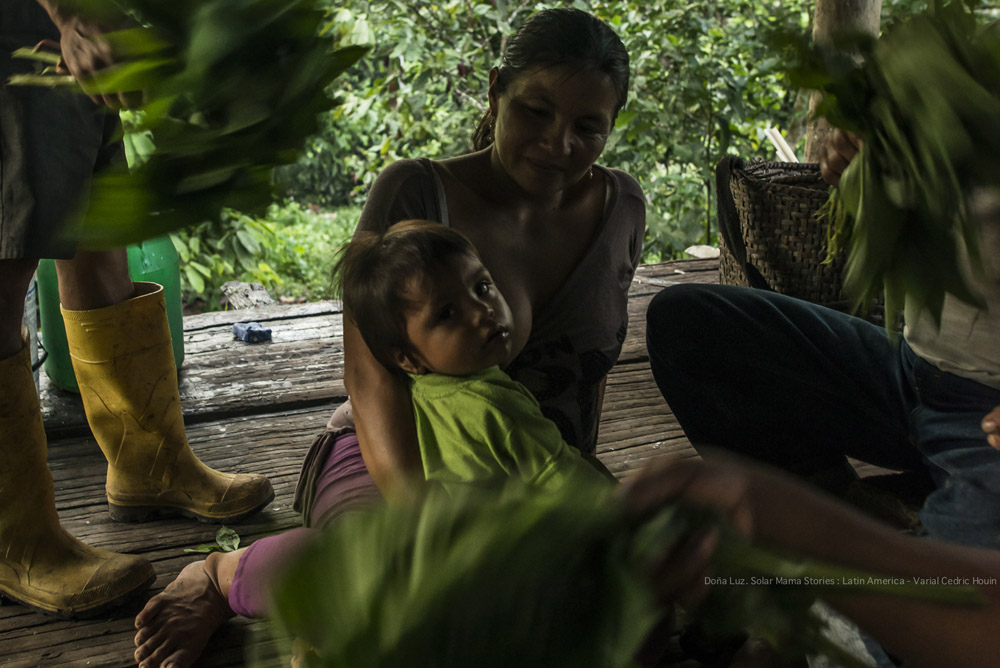
****
We spend the last day together at the site developed by the community to welcome tourists. Estella’s and Patricia’s families, with six other families, are part of a volunteer group working on the site’s development. Wood for the construction comes from one of the volunteers. He provides it free of charge in exchange for clearing one of his plots of land—a fair, two-way trade. The construction of the tourist site is impeccable. In a few months, the community will welcome its first tourists for a few days: around thirty children on a school outing will inaugurate the site.
Everybody lives here with and for each other. Everything is a collective project. In Pompeya, the most important communal project is to protect and sustain their autonomy. Patricia and Estella will electrify the site with solar panels.
To say goodbye, Estella, with her youngest daughter and a friend, is organizing a small ceremony with traditional dances. To the sound of the Cumbia, we celebrate Estella’s trip, her return, our meeting, and the imminent delivery of the solar panels.
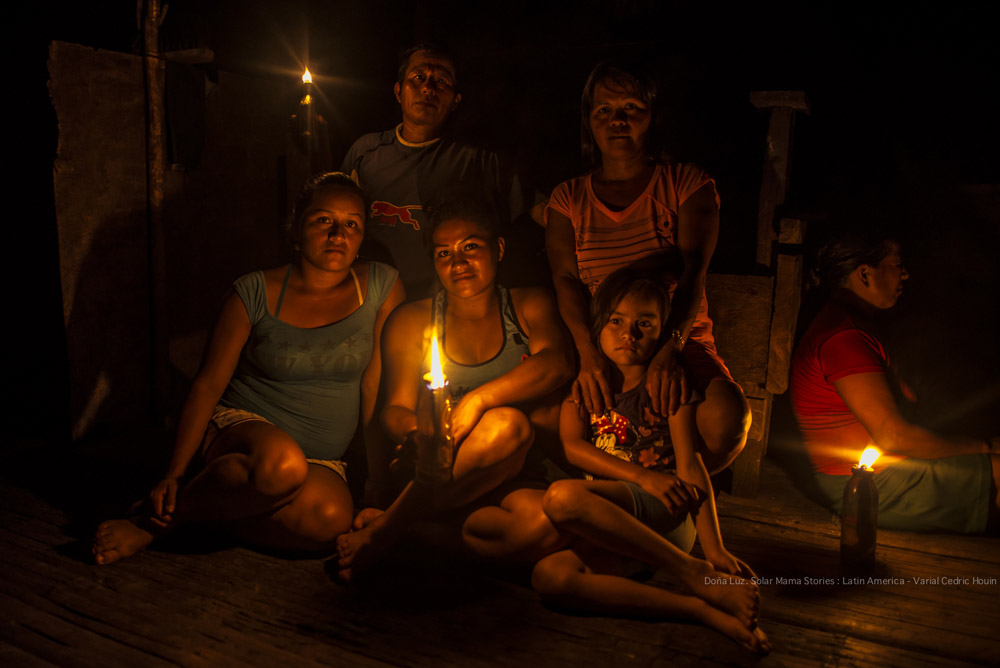
For the full story, and more riveting Solar Mama journeys, purchase the full book:
https://www.barefootcollege-donaluz.org/book

